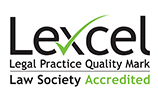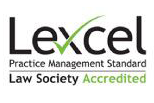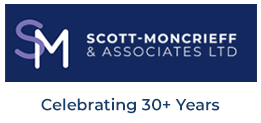Non-payment of debt is a common problem for businesses, which is not only annoying but can also cause impact on cash flow – potentially resulting in damage to client relationships and your business’ reputation. Ensuring that invoices are paid in a timely manner is crucial for the effective running of a business. Where a debt is not being paid there are two main reasons: either the debtor cannot pay or will not pay. Debt recovery can be time-consuming and frustrating, but with the correct advice, you can ensure your business recovers all amounts owed to it. Our expert debt recovery lawyers can advise and guide you through the whole process of recovering your debt. We will tailor our advice to your specific business needs.
How to ensure debts are recovered
The first port of call is to contact the debtor and alert them to the fact that they have not paid. It could be a mere oversight that the debtor has not paid, however, if this is not the case and the debt still remains outstanding, there are various procedures you can follow:
Letter Before Action
A Letter Before Action details the payment of a debt that is owing to you or your business. This method should be the first port of call as an attempt to resolve the matter using pre-action conduct, in line with court protocol. It will generally include the invoices that have not been paid along with a final warning in relation to payment. The warning explains that if the debt is not paid by this point (usually seven days) that you may begin formal court proceedings. In most cases, the threat of court action is enough to ensure payment of a debt.
It may be that the debtor is not able to pay the full amount, and in these circumstances, it is worth investigating other options such as instalment payments.
Letter of Claim
Since 1st October 2017, there is a new pre-action protocol for any business (including sole traders and public bodies) who are owed payment from an individual, (this also includes sole traders but does not apply to business-to-business debts). Under the new protocol, the letter before action is replaced by the letter of claims. This can be used for both oral and written agreements, as well as those that have been assigned to another party. A letter of claim demands payment within 30 days after which court action will commence. If a reply is received from the debtor within 30 days, then the business has to wait a further 30 days before commencing court proceedings. Failure to comply can lead to costs being awarded against the debtor if the claim is disputed.
Court proceedings
The next step is to issue a claim via the County Court Business Centre (CCBC). Most cases will be heard by a Judge in the County Court. The loser will generally pay the winner's costs in high-value claims so it is crucial to get expert legal advice. Here at Scott-Moncrieff, our solicitors can advise you on your case and represent you throughout the entire process.
Once a claim has been issued the debtor has 14 days to respond, and if they acknowledge the debt, a further 14 days is allowed. The debtor can either admit the debt or defend it by lodging a counterclaim.
If the defendant does not reply to your claim, you can ask the court to enter judgment "by default". This would mean the defendant is ordered to pay the debt in their absence. The amount fixed will be for the total amount that is owed, including all interest, compensation, solicitors fixed costs, and court fees.
The debtor has 28 days to pay a judgment debt otherwise a Count Court Judgment (CCJ) is entered on the Court Judgment Register. This remains for six years against the debtor's name and could hinder credit applications. Any costs incurred by the claimant are paid by the debtor.
If the debtor fails to pay once a court has passed judgment, then the judgment can be enforced. There are relevant forms that need to be completed. Again, our commercial lawyers are highly experienced with the entire process and can advise you every step of the way. There are various procedures that can be used at this stage including:
- Requiring the debtor to go to Court to be questioned about non-payment of the debt.
- Third Part Orders, where the debtor is actually owed money from a third party.
- Charging Order, where the debtor owns real property.
- Attachment to earnings, where the debtor is an employee of the business.
- Bailiffs or High Court Enforcement Officers.
Interest and Costs in Debt Recovery
Where payment of a debt is late and owed by another business, you can charge "statutory interest" for the last payment. This is 8% plus the Bank of England base rate for business-to-business transactions. Please note that this cannot be claimed if there is a different rate of interest stated in a contract.
Similarly, you can also charge a fixed sum for the cost of recovering a late commercial payment as well as claiming interest. The amount you can claim depends on the debt (which is set by late payment legislation):
- Up to £999.99, you can charge £40
- Between £1000 and £9999.99, you can charge £70
- £10,000 or more, you can charge £100
Contact our Commercial Debt Recovery Solicitors in London
Here at Scott-Moncrieff, our solicitors are pragmatic and clear-thinking with a keen eye for issues of commercial advantage. Our experience means we’ll hit the ground running, resolving any contentious issues with minimum upheaval. As important as all this is, we are always mindful of the client’s budget and will fulfil your requirement as cost-effectively as possible, find out more about our fees here. Our debt recovery team can work quickly and efficiently to get the results you need. We are debt recovery specialists and can deal with disputed debt cases together with our team of commercial litigation specialists who handle disputed or complex claims. We can advise you on all aspects of commercial debt recovery and what the prospects of recovery are.
We serve clients all over England and Wales, including London, Manchester, Nottingham, Birmingham, Bristol and Kent.
For more information on commercial issues issues, get in touch via our online contact form or call our team now on 020 3972 9011 .












